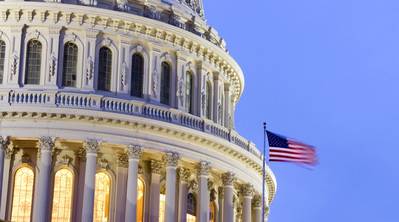Bill Allowing US to Sue OPEC Drawing Renewed Interest
With oil prices hitting fresh four-year highs, long-dormant proposals to allow the United States to sue OPEC nations are getting a fresh look in Congress, though they were once considered a longshot to becoming law.
A U.S. Senate subcommittee on Wednesday will hear testimony on the so-called No Oil Producing and Exporting Cartels Act, or NOPEC, which would revoke the sovereign immunity that has long shielded OPEC members from U.S. legal action.
The bill would change U.S. antitrust law to allow OPEC producers to be sued for collusion; it would make it illegal to restrain oil or gas production or set those prices - removing sovereign immunity that U.S. courts have ruled exists under current law.
Past U.S. leaders have opposed the NOPEC bill, but the possibility of its success may have increased due to President Donald Trump's frequent criticism of the Organization of the Petroleum Exporting Countries, and as some predict that Brent crude, the international benchmark, could reach $100 a barrel before long.
"OPEC is a pet peeve for him," said Joe McMonigle, senior energy policy analyst at Hedgeye Potomac Research. "Everybody thinks he could easily support NOPEC."
Saudi Arabia is lobbying the U.S. government to prevent the bill's passage, sources familiar with the matter said. Business groups and oil companies also oppose the bill, citing the possibility of retaliation from other countries.
OPEC controls output from member nations by setting production targets. Prices are up 82 percent following the cartel's decision to cut output at the end of 2016, hitting $84 a barrel on Monday, and lawmakers have trained their ire on the group, saying it is again harming consumers and represents interference in free markets.
Wednesday's hearing before the Senate Subcommittee on Antitrust, Competition Policy and Consumer Rights could give insight into the executive branch's stance, McMonigle said. One of the witnesses will be Makan Delrahim, assistant attorney general for the Justice Department's Antitrust Division, who has written in support of such legislation.
A version of NOPEC passed both houses of Congress in 2007 but was shelved after President George W. Bush said he would veto the legislation. Chances of passage this year are slim, as the U.S. House of Representatives is scheduled to be in session only 16 days the rest of this year, leaving little time for anything but must-do legislation like keeping the government funded.
Saudi Arabia, the world's top oil exporter, is worried that NOPEC could turn into another Justice Against Sponsors of Terrorism Act (JASTA) law, which allows victims of the Sept. 11 attacks in the United States to sue Riyadh, the sources said. The JASTA law is seen as key to why state-run Saudi Aramco was hesitant in publicly listing its shares on U.S. markets in an IPO that has since been shelved.
With close to $1 trillion in investments in the United States, Riyadh has a lot to lose if NOPEC becomes law. Saudi Energy Minister Khalid al-Falih raised concerns about it with U.S. officials, including U.S. Energy Secretary Rick Perry, during private meetings in recent months, two sources told Reuters on condition of anonymity.
Earlier this year, the U.S. Chamber of Commerce and American Petroleum Institute told Congress they opposed the bill, saying surging U.S. energy output had mitigated OPEC's influence.
Since the U.S. renewed sanctions on Iran this May, other nations, including Saudi Arabia, have agreed to increase production. However, that has not yet stopped oil's upward climb.
(Reporting by Stephanie Kelly and Rania el Gamal; Editing by David Gaffen and Tom Brown)









